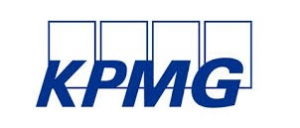
Press release: Česko zaostává v digitální transformaci. Pomoci by mohla podle závěrů konference Digitalizace Česka spolupráce státu s firmami
Podle údajů indexu digitální ekonomiky a společnosti (DESI), kterým Evropská komise každoročně sleduje pokrok v digitální rozvinutosti členských států, se Česká republika dlouhodobě drží na spodních pozicích žebříčku. Jak by k rozvoji digitalizace u nás mohly přispět technologické firmy, a co stojí za úspěšným procesem digitalizace v Estonsku objasnila konference Digitalizace Česka, jíž uspořádala Americká obchodní komora v ČR pod patronátem místopředsedy vlády pro digitalizaci Ivana Bartoše.
Podle každoročně publikovaných analýz o stavu digitální transformace zemí EU Česká republika zaostává v úrovni digitalizace hned v několika hodnocených oblastech. Digitální transformace společnosti, ekonomiky a administrativy je proto jednou z priorit současné vlády. Konference Digitalizace Česka, kterou pořádala Americká obchodní komora v ČR (AmCham) a jíž se zúčastnil místopředseda vlády pro digitalizaci Ivan Bartoš spolu se zástupci společností Amazon, Cetin, Citibank, Microsoft, Panattoni, Visa, Vodafone, White & Case, Y Soft, a zástupci Ústavu státu a práva Akademie věd ČR, otevřela diskuzi o tom, jakým způsobem mohou technologické firmy posunout Česko v digitalizaci o krok dál.
„Digitální transformace společnosti, ekonomiky a administrativy je proces, na kterém musíme spolupracovat všichni společně – občané, firmy a podniky, stát spolu s představiteli neziskových organizací a akademickou obcí. Nikdo jiný za nás totiž digitalizaci neudělá. Jsem si jistý, že se shodneme na tom, že chceme žít ve vzdělané, konkurenceschopné a odolné společnosti, v níž občané a firmy plně využívají výhod, které nám přinášejí nové technologie a umělá inteligence. Nemůžeme si dovolit nadále v digitalizaci zaostávat za ostatními zeměmi. Firmy musejí inovovat a být schopné obstát ve světové konkurenci, občané by měli mít možnost plně se rozvíjet v digitálních kompetencích tak, aby obstáli v rostoucích nárocích trhu. Moderní stát řízený daty odbourá zbytečnou byrokracii a zlepší komunikaci s občany a firmami,“ říká Ivan Bartoš, místopředseda vlády pro digitalizaci.
Podle účastníka konference Martena Kaevatse, bývalého poradce pro otázky digitální agendy Estonska a spoluzakladatele globální iniciativy GovStack, bývá nejčastější překážkou pro rozvoj digitalizace nejen kultura a způsob myšlení, ale i neochota ke změnám a nastavení konkrétního plánu a cíle, jak těchto změn dosáhnout.
„Digitalizace není o technologiích, ale mnohem více o způsobu myšlení. Bohužel nemálo zemí nemá v oblasti digitální transformace jasný plán, strategii a vizi. Často se zaměřují na konkrétní služby a malé části ekosystému a chybí implementace nástrojů pro systémové změny. Vytvořit dobrý plán znamená, že mu všichni ve společnosti rozumí a také mu věří bez ohledu na politické názory,“ říká Kaevats, a doplňuje: „Budování digitální společnosti vyžaduje čas. A i když se politici ve svých funkcích střídají, digitální transformace společnosti musí pokračovat i bez ohledu na momentální politickou konstelaci.“
Jedním z globálních lídrů v oblasti inovací a digitalizace je i společnost Amazon. Odhodlání podpořit Českou republiku na cestě k digitalizaci sdílením svého know-how a zkušeností z jiných trhů potvrdila i Lucy C. Cronin, viceprezidentka společnosti Amazon pro veřejnou politiku v EU: “Jsme hrdí na to, že můžeme inovace do České republiky přinášet a podílet se tak na rozvoji celé společnosti. Např. v příštím roce otevřeme v Kojetíně v Olomouckém kraji vysoce automatizované robotické expediční centrum, do budoucna plánujeme také rozšíření do České republiky rychlého a cenově dostupného širokopásmového připojení pomocí satelitní sítě na nízké oběžné dráze díky Projektu Kuiper.“ To umožní kvalitnější připojení odlehlejších oblastí, bez kterých se stát při systémové digitalizaci neobjede.
Spolupráce mezi státy a komerčními subjekty je zásadní také v oblasti nastavení regulace. Pravidla, která podporují spolupráci i konkurenceschopnost, totiž pomáhají nejen rozvoji nových technologií, inovací a startupů, ale zvyšují také jejich exportní potenciál. Šance, že se komerční subjekt rozhodne podnikat i za hranicemi, je o mnoho vyšší v případě, že nemusí překonávat velké množství regionálních odlišností a pravidel.
"Aby se český jednorožec uživil na globálních trzích, musí mít také globální odbyt. Čím méně se firma musí soustředit na přizpůsobení produktu dle odlišných pravidel na různých světových trzích, tím více času může investovat do inovativních technologií, které ji dále pomohou uspět,“ říká Ondřej Krajíček ze společnosti Y Soft a předseda Technologické rady AmCham.
Americká obchodní komora v ČR se bude v návaznosti na konferenci Digitalizace Česka i nadále zabývat možnostmi získávání nových technologických investic, které by podpořily rozvoj digitální ekonomiky. Zároveň bude tvořit půdu pro diskuzi o spolupráci státu a firem, bez které se digitální transformace neobejde. V nejbližších měsících bude Americká obchodní komora v ČR pořádat workshopy zaměřené na témata regulačního rámce pro oblast digitální ekonomiky.
English version follows
Prague, July 21, 2022 - Czech Republic is lagging in digital transformation. Acoording to the outcomes of The Digitization of Czechia conference, the cooperation of the government with companies could help.
Based on the data provided by the Digital Economy and Society Index (DESI), which the European Commission has been using to monitor annual progress in the digital development of member states, the Czech Republic has been occupying places at the bottom of the ranking. How technological companies could contribute to the development of digitization in our country and what is behind the successful digitization process in Estonia, all of it was explained at The Digitization of Czechia conference, which was organized by the American Chamber of Commerce in the Czech Republic under the patronage of Ivan Bartoš, Deputy Prime Minister for Digitization.
According to analyses published annually on the condition of digital transformation of EU countries, the Czech Republic lags behind in several areas. The digital transformation of society, economy, and administration is therefore one of the priorities of the current government. The Digitization of Czechia conference - organized by the American Chamber of Commerce in the Czech Republic (AmCham) and attended by the Deputy Prime Minister for Digitization Ivan Bartoš, together with representatives of Amazon, CETIN, Citibank, Microsoft, Panattoni, Visa, Vodafone, White & Case, Y Soft, as well as representative of the Institute of State and Law of the Academy of Sciences of the Czech Republic - opened a discussion on how technology companies can take the Czechia one step further in digitization.
According to the conference participant Marten Kaevats, former advisor for Estonia's digital agenda and co-founder of the global initiative GovStack, the most common obstacle to the progress in digitization is not only the culture and the mindset, but also the unwillingness to adopt change and setting a concrete plan and goal to achieve the change.
"Digitization is not about technology, but much more about the mindset. Unfortunately, only few countries have a clear plan, strategy and vision in the field of digital transformation. They often focus on specific services and small parts of the ekosystém, but the implementation of tools for systemic change is missing. Creating a good plan means that everyone in the society understands it and also believes in it, regardless of political views," says Kaevats, adding that "building a digital society takes time. And even if politicians rotate on their posts, the digital transformation of the society has to continue regardless of the current political constellation."
Amazon's determination to support the Czech Republic on the way to digitization by sharing its know-how and experience from other markets was confiremd by Lucy C. Cronin, Amazon's Vice President for Public Policy in the EU.
“We are proud to bring such innovation to the Czech Republic, whether by opening a robotics fulfilment center in Kojetín in Olomouc Region next year, or, by extending fast, affordable broadband to Czechia using Project Kuiper´s low Earth orbit satellite network. We are committed to supporting Czech Republic on its path to digitization by bringing here our know-how and experience from other markets.”
This will enable a better connection of remote areas, without which the government cannot perform systemic digitization.
The cooperation between governments and commercial entities is also essential in the field of regulatory framework. Rules that support cooperation and competitiveness not only help the development of new technologies, innovations, and startups, but also increase their export potential. The chance that a commercial entity decides to do business across borders is much higher if it does not have to overcome a large number of regional differences and rules.
“A Czech unicorn must feed itself on global markets. The less we have to worry about changing our product for different rules in each market, the more we can focus on the innovative technology itself, and the better chance we have to be successful," said Ondřej Krajíček, Chief Technology Officer at Y Soft Corporation and Chairman of the AmCham Technology Council.
Following The Digitization of Czechia conference, the American Chamber of Commerce in the Czech Republic will continue to work on the development of possibilities to attract new technological investments that would support the development of the digital economy. At the same time, AmCham will provide a platform for a discussion on the cooperation between the government and companies – this cooperation being a prerequisite for the performance of digital transformation. In the coming months, the American Chamber of Commerce in the Czech Republic will organize workshops focused on the topic of regulatory framework for digital economy.
Log In




